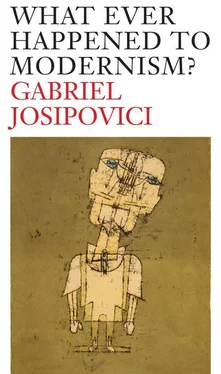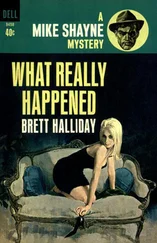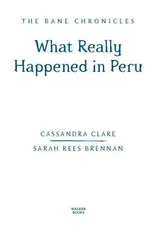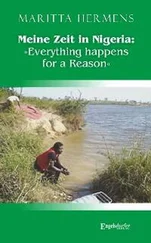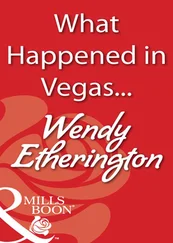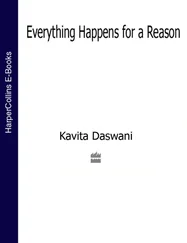The answer, and it is ‘yes’, is to be found in another poem written in 1798 and later incorporated into The Prelude , ‘The Boy of Winander’. It begins with the kind of blunt assertion that so often heralds Wordsworth's best poetry: ‘There was a Boy’. At the same time it establishes the central theme of the poem, the interconnection between person and place:
There was a Boy; ye knew him well, ye cliffs
And islands of Winander! — many a time,
At evening, when the earliest stars began
To move along the edges of the hills,
Rising or setting, would he stand alone,
Beneath the trees, or by the glimmering lake;
And there, with fingers interwoven, both hands
Pressed closely palm to palm and to his mouth
Uplifted, he, as through an instrument,
Blew mimic hootings to the silent owls,
That they might answer him. — And they would shout
Across the watery vale, and shout again,
Responsive to his call…
And, when there came a pause
Of silence such as baffled his best skill:
Then sometimes, in that silence, while he hung
Listening, a gentle shock of mild surprise
Has carried far into his heart the voice
Of mountain-torrents; or the visible scene
Would enter unawares into his mind
With all its solemn imagery, its rocks,
Its woods, and that uncertain heaven received
Into the bosom of the steady lake.
The boy interacts with the landscape and its inhabitants not by wilfully desecrating it but by becoming a part of it, calling forth the cry of the owls by using his own fingers and vocal chords, to which they joyously respond; and this leads in turn, in the silence that ensues, to a complete incorporation of the landscape into the boy and the boy into the landscape. Remember Mann's comments on echo in Monteverdi: ‘The echo-effect, the giving back of the human voice as nature-sound, and the revelation of it as nature-sound, is essentially a lament: Nature's melancholy “alas”, the lament of the nymphs as related to the echo.’ But it is not lament here in Wordsworth, showing that art, in the hands of the greatest masters, will always find a way out of the impasses philosophy and cultural history reveal.
At his best Wordsworth makes syntax, rhythm and enjambment do most of the work, and here, ending one line on the word ‘pause’ and another on the word ‘hung’, he enfolds us too, as we read and feel the weight of the words and the rhythm, in the magical reciprocity: ‘a gentle shock of mild surprise/Has carried far into his heart the voice/Of mountain-torrents’. The body — of the boy, of the poet, of the reader — becomes more than a thing, it itself becomes a landscape, a place of depths and secret springs and rivers as the forward drive of the syntax in the last part of this extraordinary sentence curves back on itself to mimic the description. There is much that could be said about the placing of ‘uncertain’ here: is the sky uncertain because it is reflected (though Wordsworth prefers the more human and affective term, ‘received’) in the lake? Because the sky does not have a surface like the lake? Or because the whole scene is already in some sense lodged in the mind and body of the boy — and of the reader?
The poem is not over, though. Wordsworth, as always, wishes to convey a visionary experience, but also, like Proust, to place that experience in the context of life. His poet is a man speaking to men, not the unacknowledged legislator of the world. The context in which this experience, this habitual experience (‘many a time’), is placed, is as powerfully shocking as the experience itself: ‘This boy was taken from his mates, and died/In childhood, ere he was full twelve years old.’ And the poet goes on to describe the place where he is buried, bringing back the word ‘hangs’, disturbingly, also in enjambment:
Pre-eminent in beauty is the vale
Where he was born and bred: the churchyard hangs
Upon a slope above the village-school…
But the sentence, like that which ended the main part of the poem, changes direction and we are left with a final surprise:
And, through that churchyard when my way has led
On summer-evenings, I believe that there
A long half-hour together I have stood
Mute — looking at the grave in which he lies!
This part of the poem might look at first as though it were merely anecdotal and sentimental: this wonderful boy with his ideal relationship to the world in which he grew up died tragically young. But the poem, like the late piano sonatas and quartets of Beethoven or the paintings of Caspar David Friedrich, asserts a quiet authority, so that its eccentricities cease to be that and become as inevitable, as unquestionable and there as an outcrop of rock. The final image, of the poet silently contemplating the grave, in a curious way takes us back to the boy and the owls: the poet becomes the boy as the boy became the owls, by mimicking him in the very poem we have been reading. For, no less than Dante's Commedia and Proust's A la Recherche , this poem ends with the poet preparing to write what we have just been reading. To achieve that he too must be silent, must ‘hang listening’, in order to become a part of the landscape, a part of the cemetery, rather than intruding on it destructively, like the boy in ‘Nutting’. Only then can he reproduce, in language, that murmuring of the underground waters which is for him the sound of life itself.
To arrive at that point he must also have understood that dying in childhood, far from being a mere accident, was the boy's destiny; or, to put it more neutrally, that death and life form part of the same warp and weft and must be grasped as one. That this is what the poem, at its deepest, is saying is confirmed by another group of poems written in those miraculous years, the so-called ‘Lucy’ poems, especially the greatest and most compressed of them:
A slumber did my spirit seal;
I had no human fears:
She seemed a thing that could not feel
The touch of earthly years.
No motion has she now, no force;
She neither hears nor sees;
Rolled round in earth's diurnal course,
With rocks, and stones, and trees.
Lucy, we learn from the other poems in the cycle, died, like the Boy of Winander, while still a child. What this poem asserts and the others merely hint at is that by dying she fulfilled herself and that now in death she really is what the poet always sensed her to be, as mortal and immortal as the earth itself. Wonderfully, he conveys that this is a dynamic, not a static state: she is not beneath the earth but, like the rocks and stones and trees, ‘rolled round in earth's diurnal course’, the passive verb here strangely active, or rather, managing — and this is the heart of Wordsworth's genius — to escape the grammatical distinctions of active and passive in order to convey a state where our grammar no longer applies. It is only when he is sealed off from the world in a slumber that itself resembles nothing so much as death that the poet can grasp what Lucy really is. No less than Rilke, Wordsworth suggests that we diminish life by denying death.
Hence Wordsworth's solitaries, and the problems Wordsworth experiences in talking about them. The overt lesson of ‘Resolution and Independence’ is that simple poor people bring light to our complicated lives because they are contented with their lot. But the poem implies something quite different. It says that the Leech-Gatherer, first seen as resembling a stone lying in the landscape, is, like Lucy, a figure who touches the poet's heart because he exists beyond language, beyond most of what we think of as making up a man, and has started to merge with nature.
This figure of the solitary in Wordsworth takes many forms. Often he is an ‘old man travelling’, walking the country roads, or a lonely farm dweller. But sometimes the human beings who arouse a powerful feeling in the poet are very strange indeed. In Book VII of The Prelude , for example, once, when he was lost in some outlying part of London,
Читать дальше
